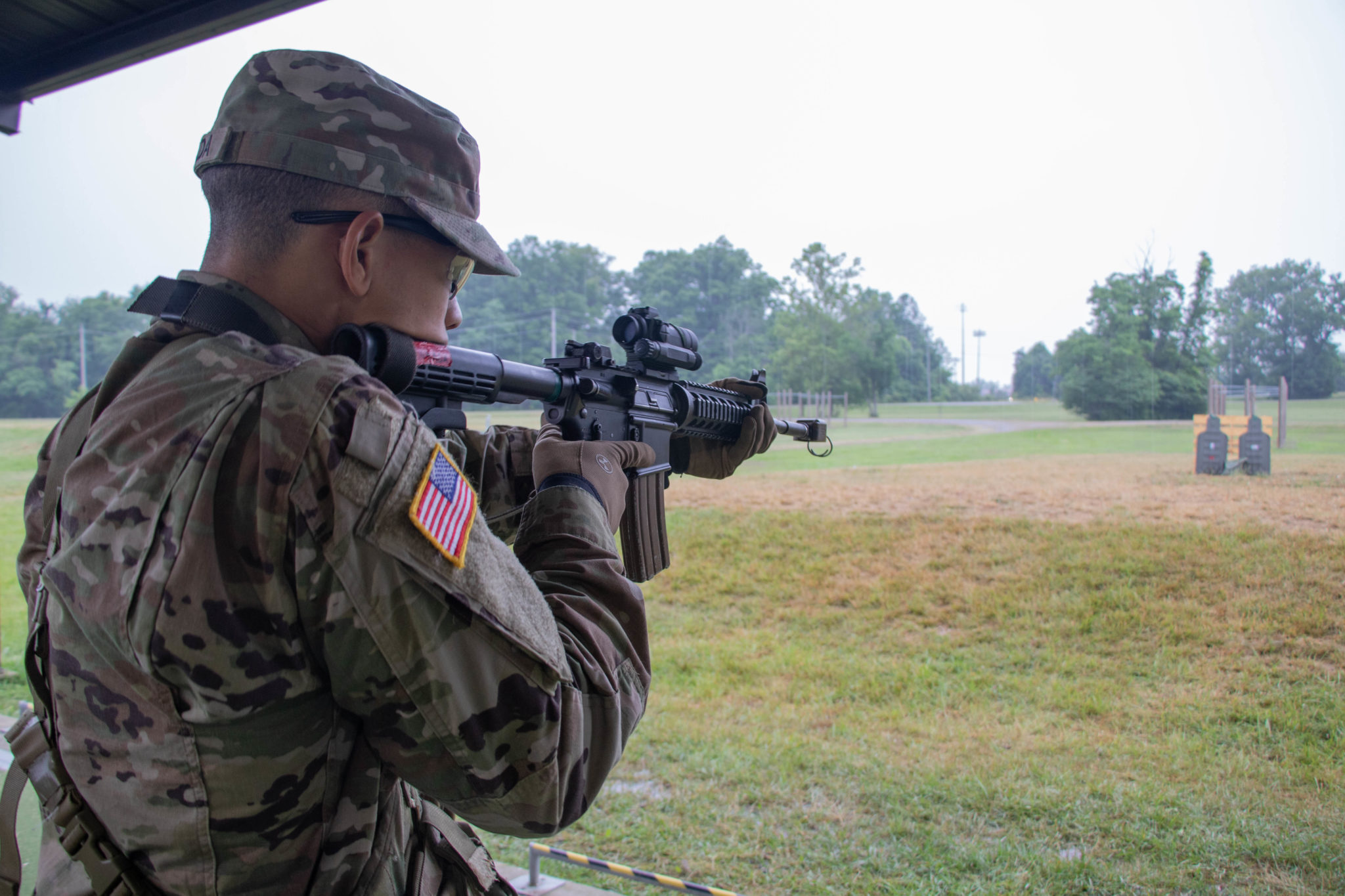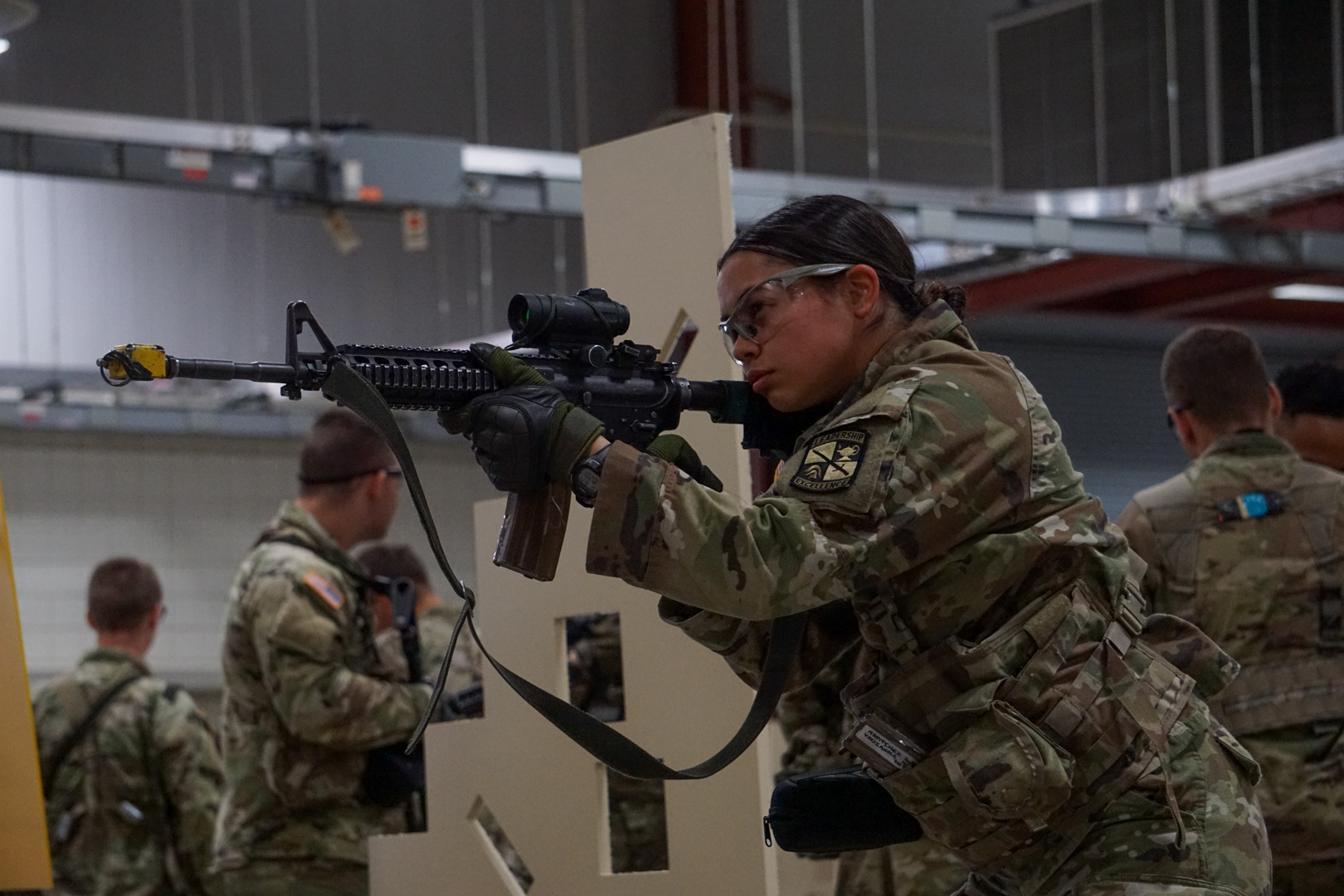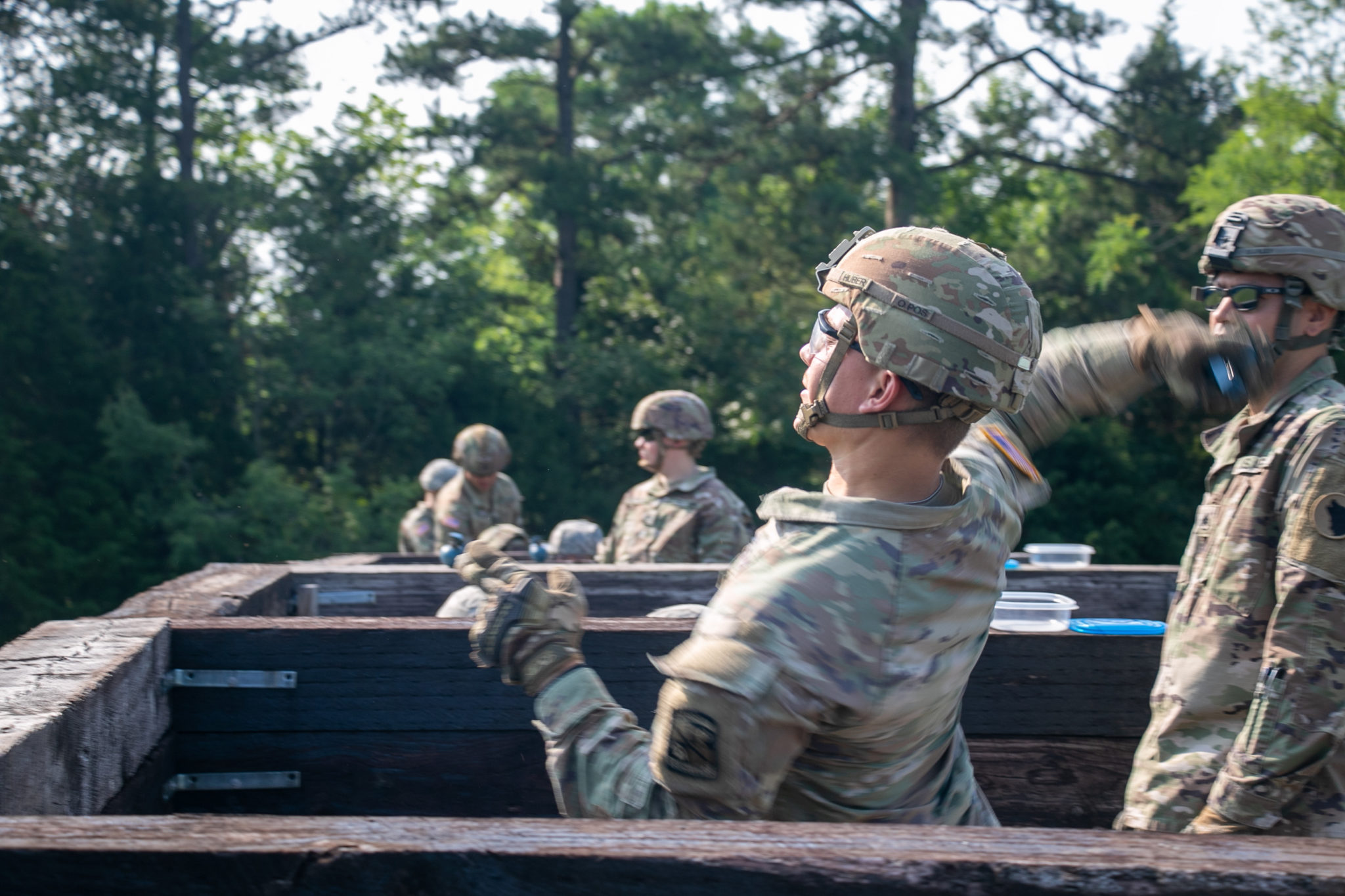[embedyt] https://www.youtube.com/watch?v=0yDOtEEDDro[/embedyt]
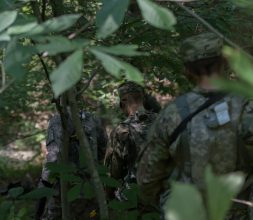
1st Regiment Basic Camp Cadets execute a troop leading procedure (TLP) at Fort Knox, Ky., July 11, 2019. | Photo by Mary Kate Griffin, CST Public Affairs Office.
FORT KNOX, Ky. 10 July – “Cadets will implement the training they receive today during the most dangerous times of their career,” said Lt. Col. Jesus Cruz. “This training will prepare Cadets to keep themselves and their soldiers alive. This is arguably the most important training they will receive.”
1st Regiment Basic Camp Cadets began their field training exercise (FTX) preparation with eight comprehensive courses focused on fundamental battle drills.
The first of the courses that Basic Camp Cadets encountered was the Individual Movement Technique (IMT) Range. Every 50 meters Cadets engaged an objective with blanks to simulate gunfire. With each movement, Cadets verbalized their movements to enforce the discipline of correct form.
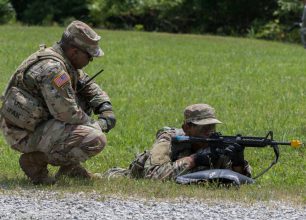
Lt. Col. Jesus Cruz mentors a 1st Regiment Basic Camp Cadet during his practice of crossing a linear danger area (LDA) at Fort Knox, Ky., July 11, 2019. | Photo by Mary Kate Griffin, CST Public Affairs Office.
“We are trying to enforce a standard here so that when Cadets have to perform these techniques for real, it will be second nature,” said Cruz.
While verbally communicating movement solidifies kinesthetic and auditory familiarity, it is a key component of survival in combat situations.
“Teamwork is everything,” said Cadet Isaac Anderson attending Washington University. “If I move without communicating with my battle buddy, I am a dead man.”
Anderson’s battle buddy Borica Chhem, a Cadet at the University of Florida, echoed the importance of teamwork in battle drills.
“Subordinate leadership and communication are necessary in order to successfully complete the mission,” said Chhem.
Today’s training is only the first phase of training Basic Camp Cadets will receive in these techniques. After today, Cadets will go through a reiteration of the training they received before applying all they have learned in a squad attack before beginning their field training exercise (FTX).
Cadet Richard Xu from the New Mexico Military Institute described a few highlights from his training.
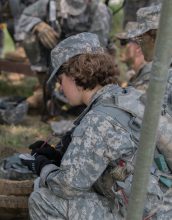
1st Regiment Basic Camp Cadets take copious notes during a lesson at FTX preparation at Fort Knox, Ky., July 11, 2019. | Photo by Mary Kate Griffin, CST Public Affairs Office.
“A terrain model kit (TMK) is a visual model of the surrounding terrain. I really liked the three-dimensional aspect of it as opposed to a drawing or map,” said Xu. “The troop leading procedures (TLP) exercise was fun because my team and I got to react to [simulated] indirect fire.”
Today’s training is an accelerated version of what most Cadets receive in their MSI and MSII years. Because Basic Camp Cadets are entering the Reserve Officer Training Corps (ROTC) program in their MSIII year, they are having to learn more information in a shorter time span.
“I am trying to soak in as much knowledge as I can so I can excel during my MSIII year,” said Cadet Jacob Vaiden attending Georgia Southern University. “I want to be well prepared for Advanced Camp next summer.”

